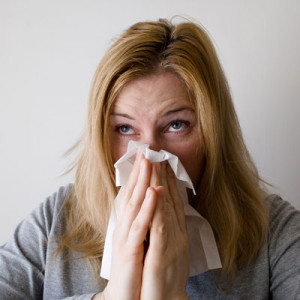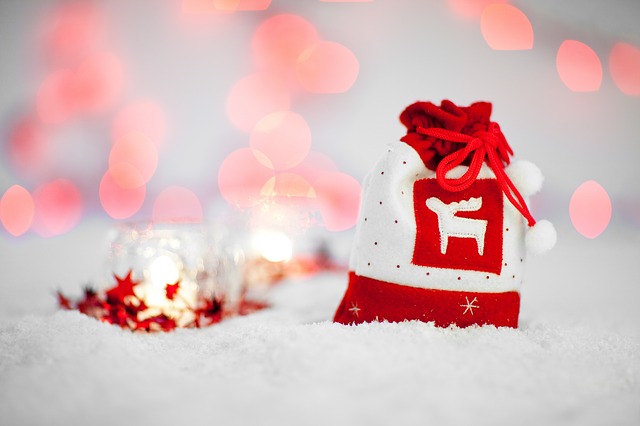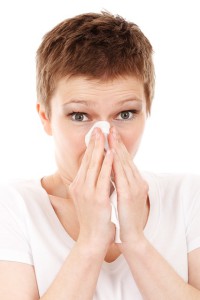- Holistic Health Care619-227-6338
Located in San Diego
Call for an appointment and directions
-
Latest Articles:
- • Embracing the Season with Tips for a Healthy Fall •
- • Savor the Season: The Best Recipes for Fall •
- • The Best Places to See Fall Foliage in the United States •
Health WellNews
Your Liver in Spring
In Traditional Chinese Medicine, Spring represents the season of the Wood element, the Liver and Gallbladder. TCM believes that eye diseases are related to deficiencies in the liver and kidney organs and result from an imbalance in the body. Spring is a great time to focus on eye health for the new season. There are many ways to improve eye health and prevent damage down the road. Finding the root of the problem and taking preventative measures is important when it comes to eye health. Below are simple ways for healthier, stronger vision.
Eat right. Certain foods are great for eye health. A diet rich in fruits and vegetables has been known to improve eye health. Specifically, try adding in more spinach, kale or collard greens into your diet. Fish such as salmon, tuna and halibut are filled with omega-3 fatty acids, which are also great for eye health.
Give it a rest. If you’re like most working adults and spend hours on the computer every day, make sure you’re taking breaks from screen time to reduce eye strain. The best strategy is the 20-20-20 rule. Every 20 minutes look 20 feet away from your computer for 20 seconds.
Protect your eyes. Protect your eyes just like you would your skin when in the sun. Make sure to wear sunglasses to protect your eyes from damaging UV rays. Make sure to find sunglasses that offer both UVA and UVB protection.
Quit smoking. There are many health reasons to quit smoking. A lot of people aren’t aware that smoking can expose your eyes to high levels of oxidative stress, which damages blood vessels. Smoking can increase your risk for many health problems that affect the eye. Contact a doctor to discuss ways to quit.
Know your history. Many eye problems can be genetic. See if family members have any eye conditions and make sure to get regular check ups if this is the case to help maintain healthy vision.
Take care of your contacts. It is easy to get into bad habits when it comes to contact wearing. Make sure to replace your contacts at the recommended time. Wash your hands before touching your contacts and take them out at night to give your eyes the rest and oxygen it needs.
Acupuncture. A number of studies found that acupuncture may have positive effects on people who suffer from chronic dry eye. One study showed that acupuncture could help reduce tear loss that those with dry eye usually experience. Common eye problems that acupuncture can treat include glaucoma, cataracts, chronic dry eyes, macular degeneration, optic neuritis, optic atrophy.
Improve Eye Health
Improving eye health can be as simple as switching up your diet and adding some healthier choices. Certain foods can have a great impact on not only overall health but vision as well. Below are some natural foods that are great to eat on a daily basis.

- Carrots: Carrots are filled with beta-carotene, a vitamin A that is good for retina health and overall eye function.
- Leafy greens: Spinach, kale, arugula and other similar greens are full of the antioxidants lutein and zeaxanthin that have been shown to lower the risk of macular degeneration and cataracts. Bottom line, up your salad intake!
- Fish: Fatty fish such as salmon, tuna and trout are packed with the omega-3 fatty acid DHA. DHA is known to help chronic dry eyes. Those with dry eye syndrome tend to have a lower level of DHA than average. Another option can be fish oil supplements with DHA.
- Eggs: Eggs are overall a great health food, filled with calcium, iron, zinc and folate. Eggs also have lutein and vitamin A, which helps night blindness and dry eyes.
Put Springtime Allergies to Rest
 Allergies, seasonal or year round, are an ongoing problem for many individuals. Seasonal allergies typically affect people during a particular season or time of year, most commonly in the spring. They are also referred to as outdoor allergies and are generally triggered by tree, grass and weed pollens or outdoor mold spores. Year round allergies also known as indoor allergies are typically brought on by animal dander, dust mites, mold spores or insect allergens. There are also food allergies, which occur as a result of eating a culprit food, and can also create physical and/or emotional symptoms such as body hives, swelling, itching or redness of the skin, depression and/or moodiness.
Allergies, seasonal or year round, are an ongoing problem for many individuals. Seasonal allergies typically affect people during a particular season or time of year, most commonly in the spring. They are also referred to as outdoor allergies and are generally triggered by tree, grass and weed pollens or outdoor mold spores. Year round allergies also known as indoor allergies are typically brought on by animal dander, dust mites, mold spores or insect allergens. There are also food allergies, which occur as a result of eating a culprit food, and can also create physical and/or emotional symptoms such as body hives, swelling, itching or redness of the skin, depression and/or moodiness.
No matter what kind of allergy you suffer from, environmental or food related, acupuncture can provide needed relief. While medications (over-the-counter or prescribed) often come with unwanted side-effects, acupuncture does not. This makes acupuncture an appealing option for people looking for a new way to combat their allergies.
According to Traditional Chinese Medicine, the symptoms and signs that indicate a Western diagnosis of allergies relate to imbalances in the meridian and Organ Systems of the body. These imbalances may stem from a variety of causes, including stress, poor diet, foods that don’t agree with your body, constitutional weakness, pollutants and environmental toxins.
Over time, if imbalances remain within the body, they will affect the functions of the Organ Systems. Some of these Organ Systems are involved in the production of Wei Qi (pronounced “way chee”). According to the theories of acupuncture and Chinese medicine, it is important to have the correct quality and quantity of Wei Qi circulating around the body in order to stay healthy.
What is Wei Qi? The Chinese concept of Wei Qi is similar to the Western concept of the immune system. Wei Qi functions to protect and defend the body against foreign substances, that if not caught can lead to allergies. When Wei Qi is strong and abundant, we remain healthy. When the supply of Wei Qi becomes deficient, health is compromised and we become vulnerable to foreign invaders such as dust, mold, animal dander, bacteria, viruses and pollen. People who have a Wei Qi deficiency are prone to allergies and frequent colds.
Acupuncture and Chinese medicine support and strengthen the systems of the body that are involved in the production of Wei Qi. By building up the supply of Wei Qi, and facilitating the smooth and free flow of it through the body, symptoms and signs related to allergies could be greatly reduced or eliminated.
Acupuncture treatments may be combined with herbs, dietary changes, massage (tuina), or exercise. These therapies accelerate the healing process in order to balance, build, and support the health and functioning of your body’s systems.
The Pessimist’s Guide to Gratitude
 Your mother was right–say thank you.
Your mother was right–say thank you.
Scientists have now proven what your mother always knew–it’s good to be grateful. Being grateful is more than just politeness; it’s actually good for your health and well-being.
In a study by Robert A. Emmons, of the University of California, and Davis and Michael E. McCullough, of the University of Miami, ( http://1.usa.gov/1Ja5vR9 ) people who kept gratitude journals showed higher levels of health and well-being than people who journaled neutral events or counted hardships. After 2 months, the people who journaled their gratitude felt more optimistic and happier than their control counterparts. They reported fewer physical problems and spent more time working out. People with neuromuscular problems who did the same thing fell asleep more quickly, slept longer and woke up feeling more refreshed. Even their spouses noticed the difference!
How can you cultivate gratefulness even if you’re a glass-half-empty person?
The first step for pessimists is to fake it ( http://bit.ly/1OupjjR ). Write down what you’re grateful for, even if you don’t feel it at the moment. Eventually the habit of finding life’s gifts will change your outlook.
Keep your gratitude list simple. Write down 5 things you’re grateful for every day. Use short, simple sentences, but be specific. “I’m grateful for my son” is less effective than “I’m grateful my son snuggled next to me before bed.”
Carry a traveling gratitude journal ( http://nyti.ms/1YivBYZ ). Buy a mini-notebook or use a note-taking app on your smart phone. Count the things you’re grateful for as they happen.
And finally, write a gratitude letter. Send a letter to someone who influenced your life and tell them how much you appreciated their support. You’ll feel happy and you’ll make them feel happy.
The trick to building gratefulness is to do it often and regularly. While the end of the year is a good time to celebrate gratefulness as a holiday, take the habit into your everyday life. Soon you will notice that you feel lighter and happier.
I am grateful to all of you for an extraordinary year. It has been my pleasure to work with you and support your health. Thank you for a wonderful 2015 and may this next year bring you health, prosperity and happiness.
7 Tips to be Stress-Free During the Holidays
Keep a routine
It is especially easy to lose your normal routine during the holidays due to festivities and the special occasions that tend to happen this time of year. Don’t abandon your healthy habits, keep your usual routine of diet and exercise, which is especially important when holiday foods and drinks come around. Try keeping a calendar to keep better track of your schedule.
Prioritize
It is easy to take on too much during this time of year. On top of your normal schedule, there is the obligation to see family, attend gatherings and gift-giving. You can only do so much! Prioritize and don’t be afraid to say no if you simply don’t have enough time to commit to something. The holiday season is busy and overwhelming, but it doesn’t have to be.
Watch the wallet
There is nothing that will stress you out more in the long run than spending too much money during the holidays. Make a budget and stick with it. It is incredibly easy to overspend during this time. Budget and allow yourself to spend a certain amount for the entire season, you’ll thank yourself after the holidays are over.

Make time for yourself
Although it is the season for giving, make sure to make time for yourself too. It can be stressful and overwhelming when you try to constantly please others. It is ok to say no to events that you may feel obligated to go to. One of the most important ways to stay stress-free this season is to give yourself time to relax. Do yoga, read or any other activity you like to do to relax.
Try acupuncture
There is no better time than now to try acupuncture. If you are feeling under the weather, stressed and not at your best health, acupuncture can help. Acupuncture can help lower stress levels, boost your immune system and leave you feeling relaxed. Give it a shot!
Give Back
Volunteer at your local food back or donate to a clothing drive. Giving back to the community is always important, but especially during the holidays. Spending time helping out doesn’t just help others, but can benefit you as well.
Don’t sweat the small things
Holidays are meant for family, friends and for celebration. Don’t sweat the small stuff. This is a time to relax and be thankful for the people in your life. Material objects come and go, but relationships will be there and are the most important thing of all. Put your job and your stress on the backburner for a bit and enjoy the people who mean the most around you.
Getting Exercise in the Winter
Interesting Ways to Help Your Kids Exercise in Winter
 It’s cold and dark outside.
It’s cold and dark outside.
You come home with the kids and all you want to do is snuggle on the couch.
Snuggling in winter may be fun (and I’m not going to say you shouldn’t snuggle) but your kids need something more. In fact, according to the Center for Disease Control (CDC), kids need at least 1 hour of physical activity—every day. And depending on your children’s school program and sports activities, they may not even get close.
There are many benefits. Exercise helps kids feel less stressed, have higher self-esteem, focus at school, sleep better and maintain a healthy weight. You’ve probably noticed that parenting children who get enough exercise is also easier than parenting those who don’t.
Winter is a time for yin activities. It’s healthy to be introspective and quiet. However, children need physical activity—even in the winter.
But on a cold, dark day, how do you get your kids to exercise?
Exercise at Home
The first strategy is to get physical activity at home. Walk the dog or shovel the snow. Race around the house. Go outside and play snowball basketball.
Young children may enjoy creative home exercise. Try playing “rock, paper, scissors” with your legs. Do sun salutations together. See who can walk upstairs backward the fastest.
When you spend time at home, keep moving. Take breaks every hour and do jumping jacks. Play exercise workout games, like Dance Dance Revolution. Do push-ups, sit-ups and squats. Use commercial breaks to challenge each other to a dance contest. Even jump-roping in the basement is a good exercise option.
Outdoor Exercise
The winter is full of outdoor exercise for kids. Sledding, skiing, skating are just a few options. Try making the same activities interesting by changing them slightly. Sled down a hill on an inner tube or cafeteria tray instead of a sled. Go skating on a lake instead of at a rink.
When you enjoy an activity that doesn’t require a lot of physical exertion, think of ways to make it vigorous. For example, walk across a field to watch the Northern Lights. Walk to the video store instead of driving. Look for ways to build exercise into your normal activities.
Kids’ Exercise Programs
There are many exercise classes for kids. Most cities have traditional options—sports leagues, gymnastics, dance studios or even a local YMCA. But now many cities have even more opportunities for children. There are yoga classes, Zumba, wall climbing, in-line skating, skate boarding and boot camps. Your child can train for marathons, triathlons and other endurance events. Some cities even have parkour gyms—a gym where kids half run and half fly, propelling themselves off the obstacles in their way.
If just reading this list of activities makes you feel exhausted, you may need an acupuncture “tune-up.” Sometimes inactivity is more than just a reaction to the dark winter season. If you feel lethargic, you’ll have an even harder time getting your children to move.
Germ Warfare
You never have to wonder when the cold and flu season is around the corner. The pharmaceutical industry will be sure that you are reminded of its arrival.
The pharmaceutical industry and the medical community at large are depending on you to leave the fate of your health and well being up to the workings of chemical-laden pills and shots rather than the innate power that runs your body and the living world around you.
The reality is that germs don’t make you sick. Rather, your body’s inability to fend off germs and foreign invaders is what results in you succumbing to illness.
 Think about it… How is it possible that a family of 5 people living under the same roof can have completely different reactions during flu season?
Think about it… How is it possible that a family of 5 people living under the same roof can have completely different reactions during flu season?
Assuming that everyone is exposed to the same germs and viruses, if the sickness were attributed completely to the virus, everyone would get sick and exhibit the same reaction and symptoms.
What happens in reality is that one or two family members get ill while the others don’t. Clearly the issue is not the germs, but the body’s response to them, caused by an individual’s immune system.
Chances are the last time you got sick you were running yourself ragged, missing sleep, eating improperly, slacking on your nutrition, all stressed out from work, skipping your acupuncture sessions, and neglecting your workouts. This is a vicious pattern that many of us fall into and it’s one that weakens the body and allows germs to take hold.
Your best defense against the flu, colds, or any other germ-borne illness is not to drug yourself, but to bolster your internal defenses. You stand your best chance of being at your healthiest when you have an optimally functioning nervous system and immune response.
So come in for an acupuncture tune-up, keep your lifestyle habits in good order, and maintain a positive attitude. Do so, and those pesky little germs don’t stand a chance!
Recipe for Autumn Balance
Below is a recipe to bring your body to balance in autumn. These foods will strengthen your immune system as your body becomes more susceptible to illness with the changing weather.
Butternut Squash Soup
1 large butternut squash
1 medium onion
2 cloves of garlic
1 stalk of celery
Boiled chicken meat
Salt, pepper, cinnamon, nutmeg

If you have a blender, blend the squash until smooth for a puree-style soup. If not, you can chop up the squash instead.
Begin by chopping up all ingredients and boiling the squash in a large pot. After the squash is mostly cooked, add the vegetables and chicken to the pot. Simmer the soup for a few minutes. When the soup is done, add spices as desired.
Butternut squash soup is not too difficult to make and contains nutrients like vitamin A to help protect your body from the upcoming flu and cold season.
3 Ways to Prepare For Seasonal Changes
 As the transition from summer to autumn begins, changes start to happen externally as well as internally. The days become shorter and the air gets cooler; our bodies change to adapt as well. Here are three ways to prepare for the fall season ahead along with the beginning of the yin cycle.
As the transition from summer to autumn begins, changes start to happen externally as well as internally. The days become shorter and the air gets cooler; our bodies change to adapt as well. Here are three ways to prepare for the fall season ahead along with the beginning of the yin cycle.
Let go of negativity
The autumn season represents the time when the lungs and large intestine are of the utmost importance. This season is especially an important time to let of negative energy in your life.
Negativity doesn’t just affect your psychological health but your physical health as well. You can help get rid toxicity in your life by being aware of the causes and surrounding yourself with positive energy and people who make you happy.
Spend time outside
Because fall is focused on the lungs, spending more time outside can help strengthen this organ and increase your immune system as cold and flu season starts to emerge.
Spend time in nature away from city pollution where you can breathe clean, cool air. Autumn time is the perfect opportunity to do this and refresh and strengthen the lungs.
Try acupuncture
Acupuncture treatment can help you physically as well as mentally prepare for the change in seasons.
Some find it difficult to let go of the summer season and transition to shorter, cooler days. Acupuncture can ease this transition and make sure your body and energy are flowing properly.
Foods for Autumn Health
FRUIT
Apple
Blackberry
Cranberry
Date
Fig
Grapes
Jicama
Mandarin Orange
Melons
Pear
Persimmon
Plum
Pomegranate
Rosehip
VEGETABLES
Bell pepper
Broccoli
Carrot
Cauliflower
Corn
Garlic
Gingerroot
Horseradish
Leeks
Onions
Parsnips
Pumpkin
Red cabbage
Rutabaga
Shallot
Spinach
Squash
Sweet potato
Turnip
Yam
GRAINS
Barley
Buckwheat
Corn
Millet
Quinoa
Rye
Wheat
NUTS
Almond
Brazil
Cashew
Filbert
Pecan
Pignolia
Pistachio
Walnut
BEANS
Adzuki
Black
Garbanzo
Kidney
Lentil
Lima
Fall – Season of the Lungs

The theories of Chinese medicine suggest that each season relates to a different organ system. The Fall is the season of the Lungs. It’s the time of year when people are easily affected by environmental influences. Great changes are taking place in the weather and plant life around us. Some people refer to it as the “flu season.”
The lungs are called the “delicate protective organ,” because they are the only organ that comes into direct contact with the external environment. This can make them vulnerable to the environmental influences which can lead to colds, the flu, or allergies.
The lungs are also involved in the production of Wei Qi. Wei Qi is a similar concept to what Western medicine refers to as the immune system. Wei Qi provides the body with an “immune system-like” barrier that protects the body from harmful pathogenic factors that can enter into it, and which may eventually lead to illness and/or disease.
Healthy and strong lungs can enhance the proper functions of the entire body. Through an intricate process, the Lungs extract “pure essence” from the air we breathe, and combine it with the food we ingest to produce the Wei Qi. This immunity-like system is then circulated throughout the entire body, providing it with a first line of defense.
When the lungs are functioning correctly, we remain healthy, and potentially free from illness. But when our lungs become weakened or imbalanced, our body may not have the capacity to produce the correct amount of Wei Qi.
When this occurs, the stage for “catching” a cold, the flu or allergies is set. Weak lungs and Wei Qi can also lead to asthma, eczema, dry skin and other problems.
The lungs are negatively affected by many factors: an improper diet, emotional stress, unexpressed or long-held grief or sadness, inherited constitution, smoking, bad air or pollution.
The ancient classic text, Zhen Jing, states, “If the lungs function well, it can activate the flow of Qi, and nourish the whole body with Wei Qi, as rain nourishes young crops.” Proper lung function is necessary to keep us healthy and to help ward off illness and disease.
S.A.D. Times Ahead?!
 The shorter days and changes in weather may throw many of us off balance, affecting our mood and behavior. In fact, ten percent of us may be diagnosed with a common problem called Seasonal Affective Disorder (S.A.D.).
The shorter days and changes in weather may throw many of us off balance, affecting our mood and behavior. In fact, ten percent of us may be diagnosed with a common problem called Seasonal Affective Disorder (S.A.D.).
People suffering from S.A.D. may have a few, or all symptoms present; changes in appetite, weight gain, cravings for sweet and starchy foods, a tendency to oversleep and have difficulty in waking, fatigue, low energy, decreased libido, aches, pains, and difficulty focusing.
These symptoms can be severe enough that our lives will be completely disrupted. We may even try to avoid social situations and become a recluse this time of year.
Traditional treatments involve mood altering drugs. While they may be effective, drugs can also have severe side-effects. Instead, many people choose to use natural remedies to combat S.A.D. such as exercise, herbs and light therapy. Light therapy involves sitting in front of a light unit equipped with specially designed bulbs. These bulbs duplicate the normal light spectrum of the sun on a cloud-free spring day. Since lack of sunlight is a factor in S.A.D., this therapy works quite well.
Light therapy requires an exposure to these special bulbs for at least 30 minutes a day. But, be cautioned, just like the sun, you can’t look directly into the light. There are many resources on the internet for this.
Another approach is to keep body and mind balanced with acupuncture care. Bodies can be easily thrown off balance with just about everything we do in life. The seasons have a direct influence upon the health of our mind and body. Acupuncture treatments can rebalance body systems, calming the mind, lifting the spirit and turning on our internal light switch!
Just another reason to keep your body, mind and meridian system in tip top shape!
Headaches – How Acupuncture Helps
 If you suffer from headaches, you are not alone. Over 50 million of us experience some form of a severe headache at some point in our lives. Whether you experience minor head pain or severe migraines, headaches can take valuable time out of your day and your life, and leave you searching for relief.
If you suffer from headaches, you are not alone. Over 50 million of us experience some form of a severe headache at some point in our lives. Whether you experience minor head pain or severe migraines, headaches can take valuable time out of your day and your life, and leave you searching for relief.
Many seek relief by reaching for drugs and other medications. This may work temporarily and can help you get out of pain fast. Unfortunately, common headache medications do not address the root cause(s), and when used over long periods of time can cause unwanted side effects. continue reading
All Revved Up and Can’t Slow Down
 What do you think would happen if you kept your car in park and the engine revving at 65 miles per hour?
What do you think would happen if you kept your car in park and the engine revving at 65 miles per hour?
You guessed it—after a short time your car would break down. If you were lucky, a simple tune-up would fix the problem. If not, the engine might need to be replaced entirely.
Stress is a revving engine that, if left unchecked, can wear out the body and mind. Stress in our professional, personal, financial and social lives can lead to a variety of symptoms and signs of ill health. continue reading




